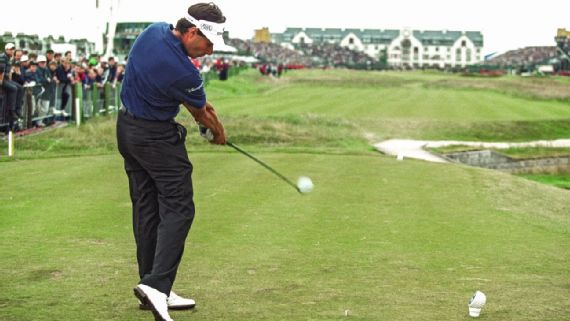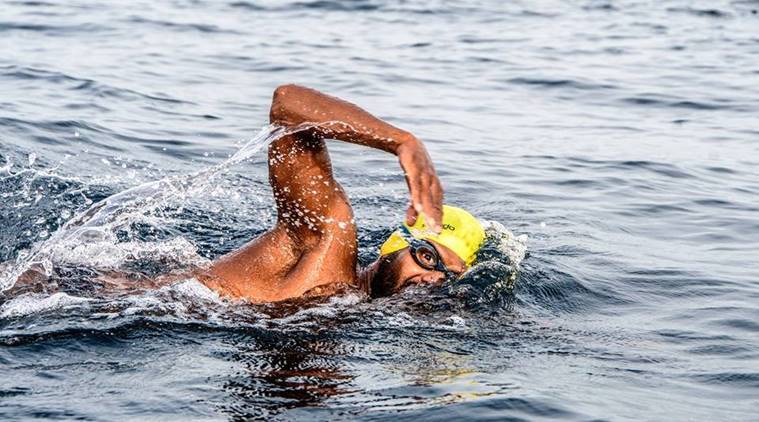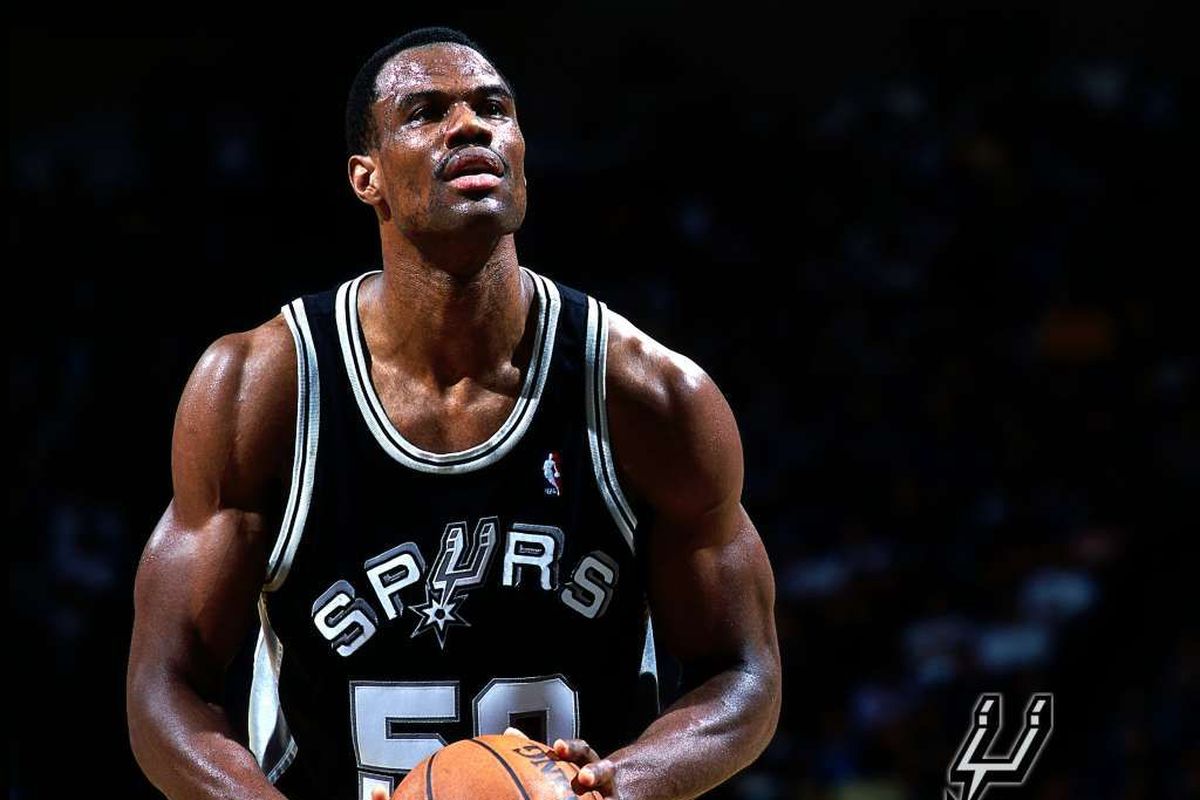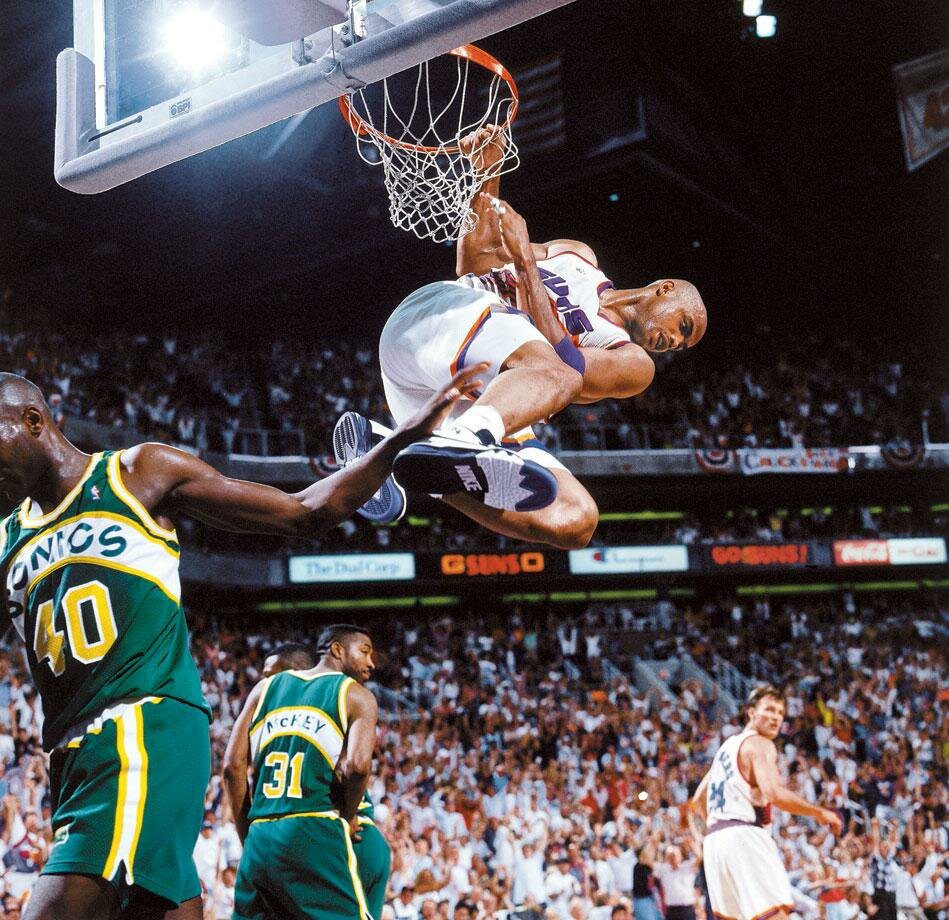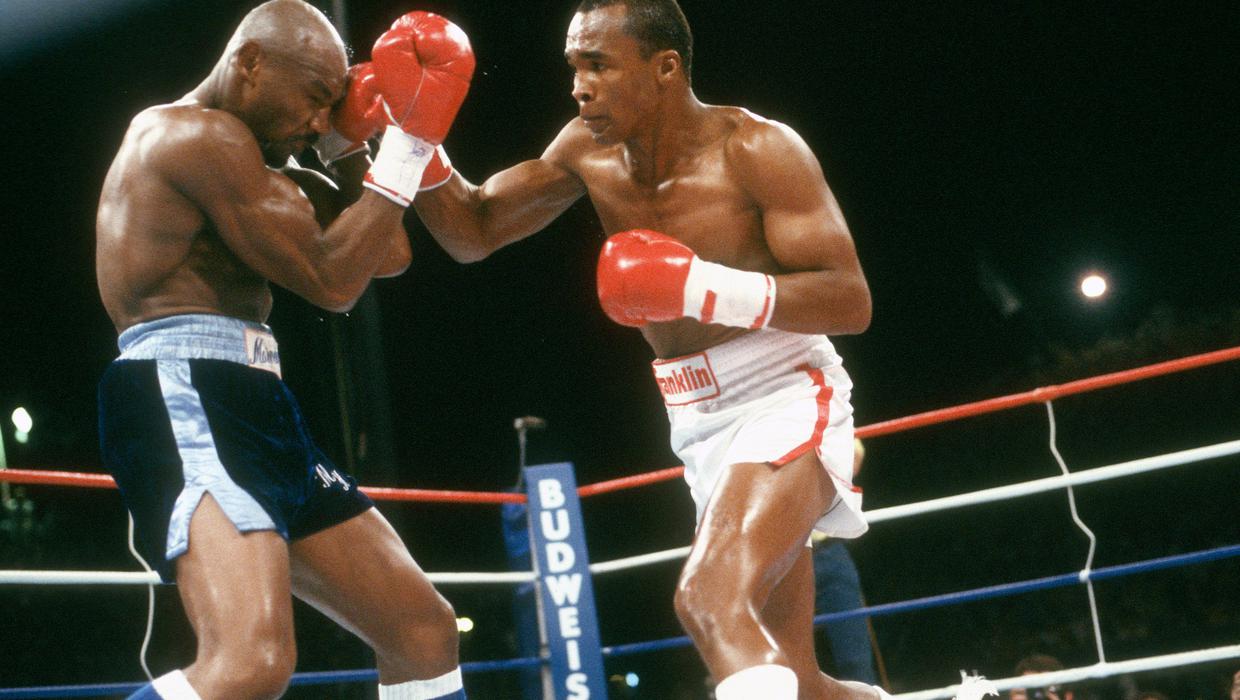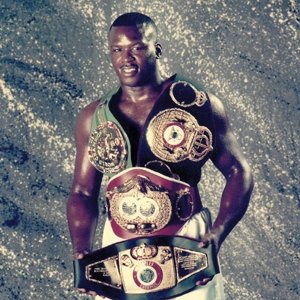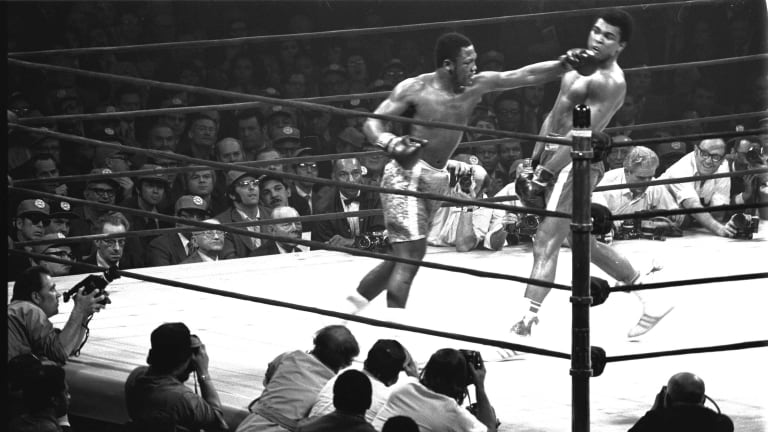Chuck Wepner was the real Rocky Balboa.
Charles Wepner was born in New York City on February 26, 1939. After his parents separated, Chuck and his brother, Dan, moved with their mother to Bayonne, New Jersey, and lived in a converted coal shed. Located across the Kill Van Kull tidal strait from Staten Island, Bayonne [bay-OWN] was rough. “It was a tough town with a lot of people from the docks and naval base,” Wepner recalls. “You had to fight to survive.” Not wanting to work on the waterfront as a longshoreman, Wepner joined the U.S. Marines at 17. Stationed in North Carolina, he was a member of the “crash crew”—assigned to put out fires and rescue pilots from planes that had crash-landed. He also joined the boxing team. The 6’5”, 230-pound Wepner developed a reputation for being able to take a punch and, after 22 bouts, became a military champion. He left the Marines at 20 and returned to Bayonne, working as a security guard and night club bouncer. Married with one child and another on the way, Wepner had a reputation as a tough guy. “I was undefeated in bathrooms, telephone booths and alleys.” He continued to box, winning the New York Golden Gloves heavyweight championship. In 1964, he turned pro.
In his first pro bout in August 1964, Wepner knocked out “Lightning” George Cooper in the third round. He fought on the club boxing circuit throughout the Northeast while working as a liquor salesman. “I would get up every morning at 5:30 and run five miles, go to work, train at the gym, get a bite of dinner and go to bed. The next day, I’d do it all over again.” Wepner lost to Buster Mathis at Madison Square Garden in 1966 and faced George Foreman [Daily Dose, 10/26/16] in 1969, losing by TKO when the fight was stopped in the third round because of bleeding. In June 1970, he squared off against former heavyweight champion Sonny Liston—once the most feared fighter in the world—at the Armory in Jersey City, New Jersey. Liston administered such a savage beating—Wepner suffered a broken nose, shattered cheekbone and required 72 stitches in his face–that the referee stopped the fight after nine rounds. A ringside reporter, whose suit was covered in blood, dubbed Wepner the “Bayonne Bleeder.” Three years later, Wepner defeated former WBA champion Ernie Terrell to claim the vacant National Americas heavyweight title.
In September 1974, Wepner was scheduled to fight George Foreman, who had become world heavyweight champion, in a rematch for the title. When Muhammed Ali stunned the undefeated Foreman at the “Rumble in the Jungle” in Zaire, Wepner was left without a match. Three months later, Don King—who was promoting his first fight on his own—arranged for Wepner to meet Ali. Wepner, who was 36 years old and ranked eighth in the world, was to receive $ 100,000 for the fight and another $ 25,000 for training expenses. He took leave from his liquor salesman job and, for the first and only time in his life, hired a real trainer, Al Braverman. After eight weeks of training in the Catskill Mountains and using the slogan, “Give The White Guy a Break,” Wepner entered the fight against Ali as a 40-to-one underdog.
On March 24, 1975, Muhammed Ali met Chuck Wepner, former sparring partner of “Smokin” Joe Frazier [Daily Dose, 4/22/16] at the Richfield Coliseum outside Cleveland for the heavyweight championship of the world. In the ninth round, Wepner hit Ali under the heart, knocking the champ to the canvas. Wepner immediately turned to his corner and said to Braverman, “Al, start the car. We’re going to the bank—we’re millionaires.” His trainer responded, “You better turn around. Ali is getting up, and he looks mad.” Ali decisively out-boxed Wepner in the remaining rounds, opening cuts above both eyes and breaking the challenger’s nose. The fight was stopped after Ali knocked Wepner down with 19 seconds left in the 15th and final round. “Everybody asks, ‘Why do you think you lost?’ said Wepner. ‘ Well, I lost because I fought a better fighter. He was just too good for me, that’s all.”
Chuck Wepner calls the day he lost to Muhammad Ali the greatest of his life. A no-name from nowhere got a title shot that changed his life forever. “To this day I am very proud of what I accomplished in that fight.” Ali was knocked down four times in his pro boxing career. Wepner is the only man to put Ali on his back as a champion. Sylvester Stallone was a struggling actor when he watched the fight from a theatre in Philadelphia. He was so moved by Wepner’s effort that he went home and wrote a screenplay for a film. Two years later, Rocky was released. Without the Bayonne Bleeder, there would be no Italian Stallion.Wepner went 35-14-2 as a professional boxer. He went 360 rounds in 51 bouts and knocked out 33 percent of his opponents. Wepner broke his nose 11 times and received 338 stitches in his 15-year career. He twice wrestled a bear and fought pro wrestler Andre the Giant in front of over 32,000 fans at New York’s Shea Stadium. During the match, Andre threw Wepner out of the ring, providing inspiration for the scene in Rocky III, where Hulk Hogan [Daily Dose, 8/11/15] as “Thunderlips” did the same to Rocky Balboa. Wepner auditioned for Rocky but did not get the role. For years, Stallone assured Wepner that he would be compensated for his part in creating the Rocky franchise. When that did not happen, Wepner filed a lawsuit in 2003 seeking his share of the profits.. Stallone settled out of court in 2006 for an undisclosed amount. In 2011, ESPN aired a 30-for-30 documentary on Mr. Wepner titled The Real Rocky. In September 2016, IFC Films released “The Bleeder”—a biopic starring Live Schreiber as Mr. Wepner and Naomi Watts as Linda, Wepner’s third wife.
This Sunday marks the 52nd anniversary of Chuck Wepner’s third win as a professional. On December 18, 1964, Wepner out-pointed Jerry Tomasetti in a four-round decision at New York’s Madison Square Garden [Daily Dose, 12/15/15].
“I love you. You turned my water into wine.”
– Boxing promotor Don King, to Chuck Wepner following his 1975 fight against Muhammad Ali


